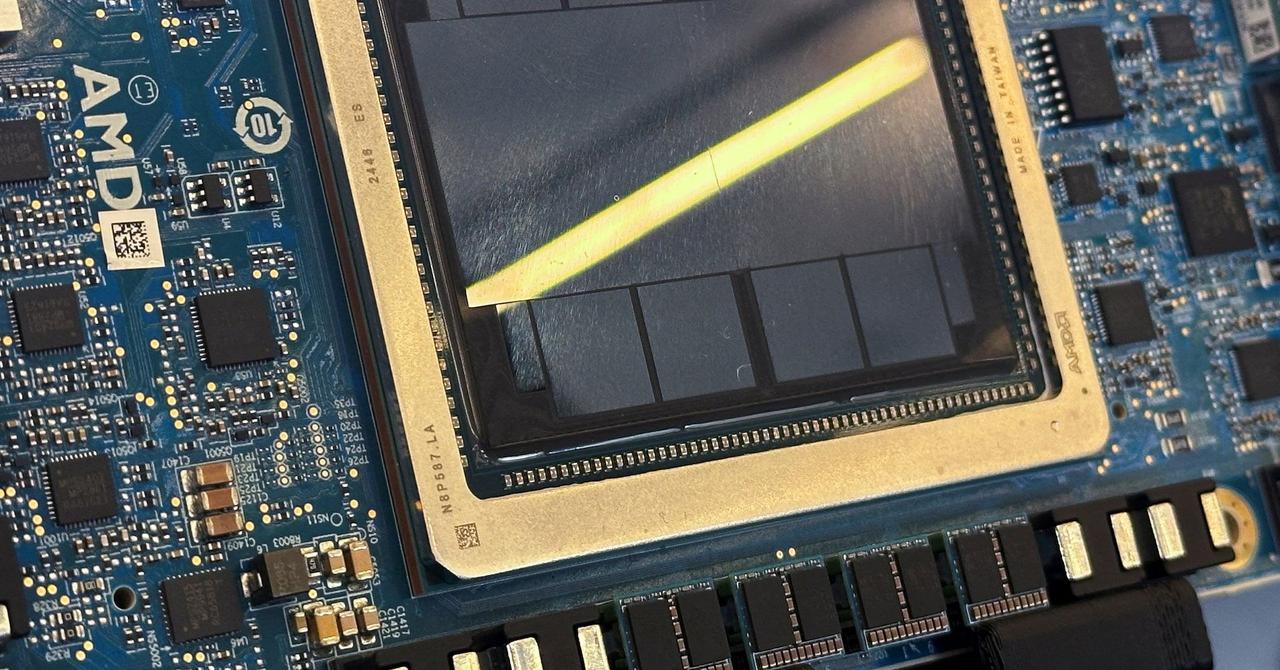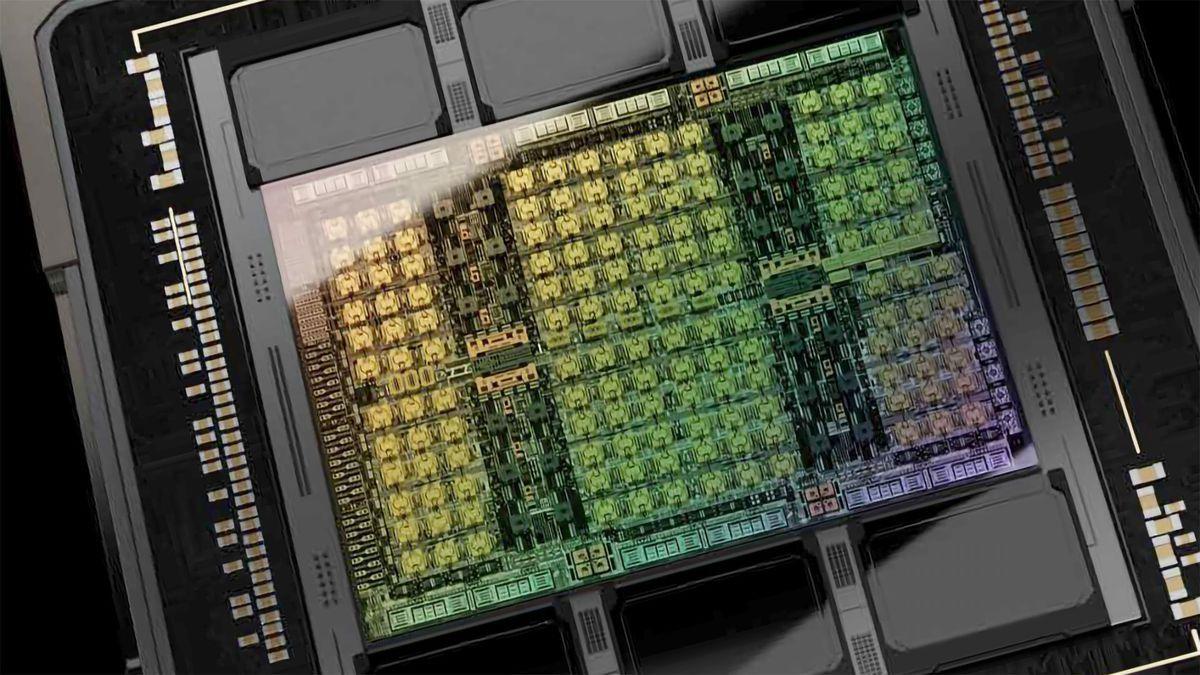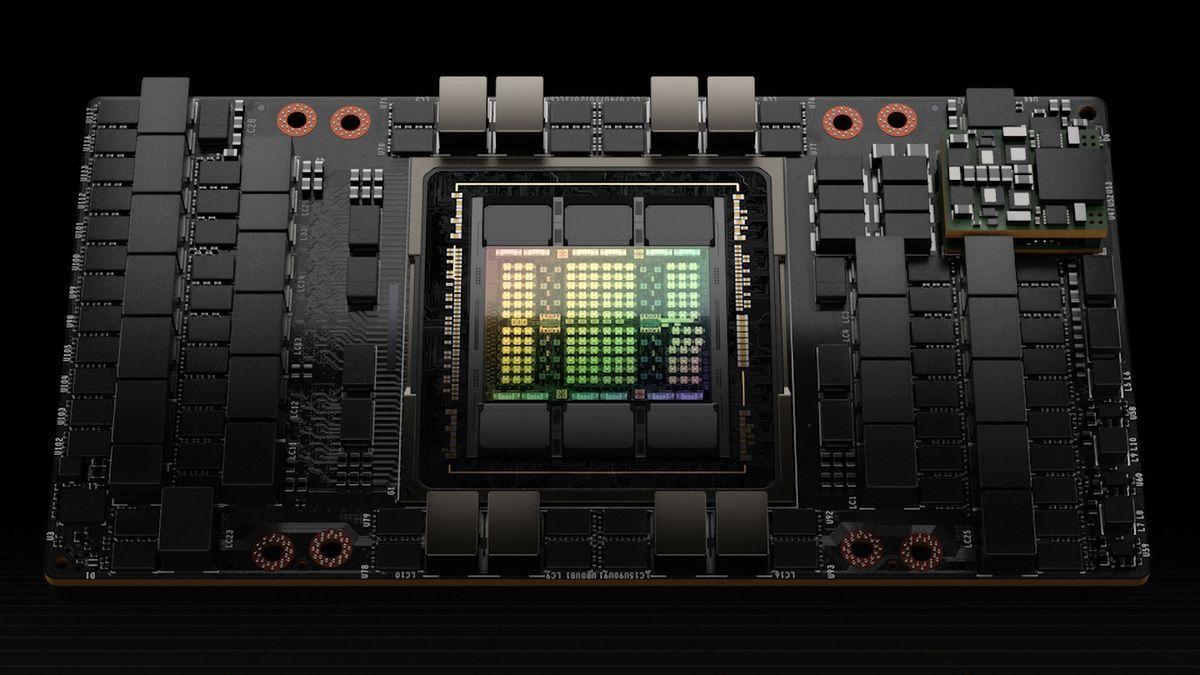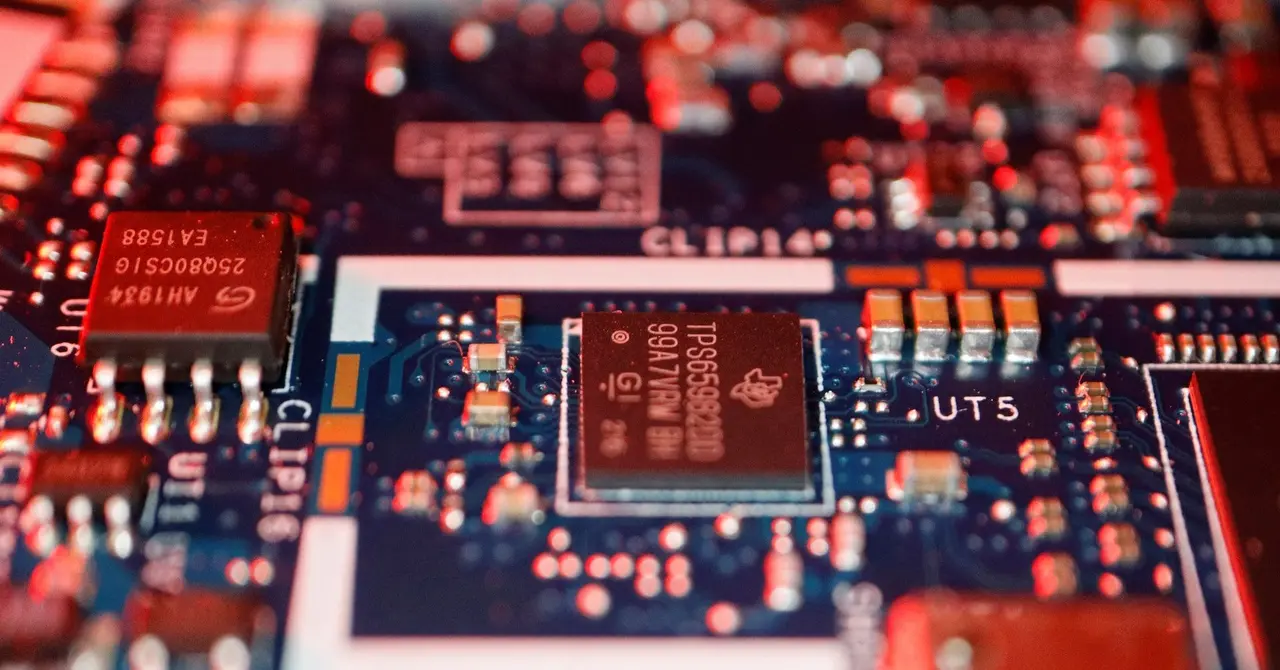Trump Administration Proposes AI Chip Location Verification in New Export Control Strategy
4 Sources
4 Sources
[1]
Trump's AI Action Plan aims to block chip exports to China but lacks key details | TechCrunch
The Trump administration wants its AI technology to be considered an industry leader both on home soil and abroad. But it also doesn't want the U.S.'s AI prowess to empower or embolden a foreign adversary. That's quite the balance to strike. If President Trump's AI Action Plan, which was released on Wednesday, is any indicator, the administration seems to still be figuring out the right course of action to achieve those goals. "America currently is the global leader on data center construction, computing hardware performance, and models," the plan stated. "It is imperative that the United States leverage this advantage into an enduring global alliance, while preventing our adversaries from free-riding on our innovation and investment." The plan mentions strengthening AI chip export controls through "creative approaches" followed by a pair of policy recommendations. The first calls on government organizations, including the Department of Commerce and National Security Council, to work with the AI industry on chip location verification features. The second is a recommendation to establish an effort to figure out enforcement for potential chip export restrictions; notably, it mentions that while the U.S. and allies impose export controls on major systems required for chip manufacturing, there isn't a focus on many of the component sub-systems -- a hint at where the administration wants the DOC to direct its attention. The AI Action plan also talks about how the U.S. will need to find alignment in this area with its global allies. "America must impose strong export controls on sensitive technologies," the plan states. "We should encourage partners and allies to follow U.S. controls, and not backfill. If they do, America should use tools such as the Foreign Direct Product Rule and secondary tariffs to achieve greater international alignment." The AI Action plan never gets into detail on exactly how it will achieve Al global alliances, coordinate with allies on export chip restrictions, or work with U.S.-based AI companies on chip location verification features. Instead, the AI Action plans lay out what foundational building blocks are required for future sustainable AI chip export guidelines, as opposed to policies implemented on top of existing guidelines. The upshot: chip export restrictions are going to take more time. And there's ample evidence, beyond the AP Action plan, to suggest it will. For instance, the Trump administration has contradicted itself multiple times on its export restriction strategy in the past few months -- including just last week. In July, the administration gave semiconductor firms, like Nvidia and AMD, the green light to start selling AI chips they had developed for China, just months after rolling out licensing restrictions on the same AI chips that effectively pulled Nvidia out of the Chinese market. The administration also formally rescinded the Biden administration's AI Diffusion Rule in May, just days before it was supposed to go into effect. The AI Diffusion rule put a cap on how much AI computing capacity some countries were allowed to buy. The Trump administration is expected to sign multiple executive orders July 23. Whether these will contain detailed plans on how it will reach its goals is unclear. While the AI Action Plan talks at length about figuring out how to expand the U.S. AI market globally, while maintaining dominance, it's light on the specifics. Any executive order regarding chip export restrictions will likely be about getting the proper government departments together to figure out a path forward, as opposed to formal guidelines, quite yet.
[2]
Trump administration recommends location verification for AI chips
SAN FRANCISCO, July 23 (Reuters) - U.S. President Donald Trump's administration on Wednesday recommended implementing export controls that would verify the location of advanced artificial intelligence chips, a move that was applauded by U.S. lawmakers from both parties in both houses of Congress. The recommendation was part of a broader AI blueprint released on Wednesday that aimed to boost exports of AI hardware and software to U.S. allies and relax U.S. environmental rules to speed the construction of new AI data centers. But the plan released Wednesday also said the U.S. should continue denying access to advanced U.S. AI chips made by companies like Nvidia (NVDA.O), opens new tab and AMD (AMD.O), opens new tab to foreign adversaries. It added the U.S. government should "explore leveraging new and existing location verification features on advanced AI compute to ensure that the chips are not in countries of concern." The recommendation drew support from two lawmakers who previously introduced bills that would require location verification of chips after sale over concerns that they are finding their way to countries such as China, where their export is banned. Key details - such as how the technology would be implemented and how much cost it would add - remain to be worked out, both in the proposed bills and the Trump administration's recommendations. "I was encouraged to see that the recommended export control policy includes location verification mechanisms and aligns closely with our bipartisan Chip Security Act. I look forward to learning more of the technical details and next steps for end-use verification," Representative Bill Foster, an Illinois Democrat who helped introduce a chip-location bill in May, told Reuters. "Senator Cotton was pleased to see verification included in President Trump's AI Action Plan, as it's a vital part of his bipartisan, bicameral Chip Security Act and an important tool to keep advanced American technology out of the hands of Communist China," said Patrick McCann, a spokesperson for Senator Tom Cotton, an Arkansas Republican who introduced a similar bill in the U.S. Senate. Reporting by Stephen Nellis in San Francisco; Editing by Jamie Freed Our Standards: The Thomson Reuters Trust Principles., opens new tab
[3]
Trump Administration Recommends Location Verification for AI Chips
SAN FRANCISCO (Reuters) -U.S. President Donald Trump's administration on Wednesday recommended implementing export controls that would verify the location of advanced artificial intelligence chips, a move that was applauded by U.S. lawmakers from both parties in both houses of Congress. The recommendation was part of a broader AI blueprint released on Wednesday that aimed to boost exports of AI hardware and software to U.S. allies and relax U.S. environmental rules to speed the construction of new AI data centers. But the plan released Wednesday also said the U.S. should continue denying access to advanced U.S. AI chips made by companies like Nvidia and AMD to foreign adversaries. It added the U.S. government should "explore leveraging new and existing location verification features on advanced AI compute to ensure that the chips are not in countries of concern." The recommendation drew support from two lawmakers who previously introduced bills that would require location verification of chips after sale over concerns that they are finding their way to countries such as China, where their export is banned. Key details - such as how the technology would be implemented and how much cost it would add - remain to be worked out, both in the proposed bills and the Trump administration's recommendations. "I was encouraged to see that the recommended export control policy includes location verification mechanisms and aligns closely with our bipartisan Chip Security Act. I look forward to learning more of the technical details and next steps for end-use verification," Representative Bill Foster, an Illinois Democrat who helped introduce a chip-location bill in May, told Reuters. "Senator Cotton was pleased to see verification included in President Trump's AI Action Plan, as it's a vital part of his bipartisan, bicameral Chip Security Act and an important tool to keep advanced American technology out of the hands of Communist China," said Patrick McCann, a spokesperson for Senator Tom Cotton, an Arkansas Republican who introduced a similar bill in the U.S. Senate. (Reporting by Stephen Nellis in San Francisco; Editing by Jamie Freed)
[4]
Trump administration recommends location verification for AI chips
SAN FRANCISCO (Reuters) -U.S. President Donald Trump's administration on Wednesday recommended implementing export controls that would verify the location of advanced artificial intelligence chips, a move that was applauded by U.S. lawmakers from both parties in both houses of Congress. The recommendation was part of a broader AI blueprint released on Wednesday that aimed to boost exports of AI hardware and software to U.S. allies and relax U.S. environmental rules to speed the construction of new AI data centers. But the plan released Wednesday also said the U.S. should continue denying access to advanced U.S. AI chips made by companies like Nvidia and AMD to foreign adversaries. It added the U.S. government should "explore leveraging new and existing location verification features on advanced AI compute to ensure that the chips are not in countries of concern." The recommendation drew support from two lawmakers who previously introduced bills that would require location verification of chips after sale over concerns that they are finding their way to countries such as China, where their export is banned. Key details - such as how the technology would be implemented and how much cost it would add - remain to be worked out, both in the proposed bills and the Trump administration's recommendations. "I was encouraged to see that the recommended export control policy includes location verification mechanisms and aligns closely with our bipartisan Chip Security Act. I look forward to learning more of the technical details and next steps for end-use verification," Representative Bill Foster, an Illinois Democrat who helped introduce a chip-location bill in May, told Reuters. "Senator Cotton was pleased to see verification included in President Trump's AI Action Plan, as it's a vital part of his bipartisan, bicameral Chip Security Act and an important tool to keep advanced American technology out of the hands of Communist China," said Patrick McCann, a spokesperson for Senator Tom Cotton, an Arkansas Republican who introduced a similar bill in the U.S. Senate. (Reporting by Stephen Nellis in San Francisco; Editing by Jamie Freed)
Share
Share
Copy Link
The Trump administration's AI Action Plan recommends implementing location verification for advanced AI chips as part of a broader strategy to maintain U.S. technological dominance while preventing adversaries from accessing cutting-edge AI technology.
Trump Administration Unveils AI Action Plan
The Trump administration has released a new AI Action Plan, outlining strategies to maintain U.S. dominance in artificial intelligence while preventing adversaries from accessing advanced technologies. The plan, released on Wednesday, focuses on strengthening export controls for AI chips and proposes implementing location verification mechanisms
1
.
Source: TechCrunch
Key Recommendations and Objectives
The AI Action Plan emphasizes several key objectives:
- Strengthening AI chip export controls through "creative approaches"
1
. - Boosting exports of AI hardware and software to U.S. allies
2
. - Relaxing U.S. environmental rules to expedite the construction of new AI data centers
2
. - Continuing to deny access to advanced U.S. AI chips to foreign adversaries
2
.
Location Verification for AI Chips
A central recommendation in the plan is the implementation of export controls that would verify the location of advanced AI chips. The administration suggests "exploring leveraging new and existing location verification features on advanced AI compute to ensure that the chips are not in countries of concern"
3
.
Source: Reuters
Bipartisan Support and Alignment with Proposed Legislation
The recommendation for location verification has garnered support from lawmakers on both sides of the aisle:
- Representative Bill Foster, an Illinois Democrat, expressed encouragement, noting the alignment with the bipartisan Chip Security Act
3
. - Senator Tom Cotton, an Arkansas Republican, viewed the inclusion of verification in the AI Action Plan as a vital component of the bipartisan, bicameral Chip Security Act
3
.
Related Stories
Challenges and Uncertainties
While the AI Action Plan outlines broad objectives, it lacks specific details on implementation:
- The plan does not provide concrete strategies for achieving AI global alliances or coordinating with allies on export chip restrictions
1
. - Key details, such as the technology implementation and associated costs, remain to be worked out in both the proposed bills and the administration's recommendations
4
. - The administration has shown inconsistency in its export restriction strategy, including recent contradictions regarding AI chip sales to China
1
.
Implications for the AI Industry
The proposed measures could have significant implications for major AI chip manufacturers like Nvidia and AMD, potentially affecting their global market access and operations
2
. The plan also hints at a focus on component sub-systems in future export controls, which could reshape the AI hardware supply chain1
.As the administration prepares to sign multiple executive orders, the AI industry and global markets await more detailed guidelines and formal policies to emerge from these foundational recommendations.
References
Summarized by
Navi
[1]
[4]
Related Stories
Trump Administration Considers New Restrictions on Nvidia AI Chip Exports Amid DeepSeek Concerns
31 Jan 2025•Policy and Regulation

Congress advances AI Overwatch Act, seeking veto power over Trump's AI chip exports to China
21 Jan 2026•Policy and Regulation

Senators Push SAFE Chips Act to Block Advanced AI Chips Sales to China for 30 Months
05 Dec 2025•Policy and Regulation

Recent Highlights
1
ByteDance's Seedance 2.0 AI video generator triggers copyright infringement battle with Hollywood
Policy and Regulation

2
Demis Hassabis predicts AGI in 5-8 years, sees new golden era transforming medicine and science
Technology

3
Nvidia and Meta forge massive chip deal as computing power demands reshape AI infrastructure
Technology





